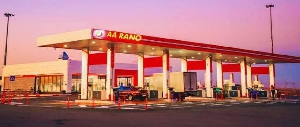Going forward, we will develop a robust plan to actualise the Executive Order, especially with regard to sanctions for non-compliance. We will also engage other MDAs to solicit support for the Made-In-Nigeria campaign. We will collaborate with the Bureau of Public Procurement to publish a catalogue of locally produced goods as well as monitor compliance as our contribution to achieving this goal.
In addition, as part of the industrialisation march, there are also several industrial policies expected to be finalised this year, including the Cotton, Textile and Garment Policy, the Oil Palm Policy, as well as the passage of the Automotive Industry Development Bill, to name a few. This will lay out strategies including incentives to ensure self-sustainability in critical sectors. We believe that the implementation of these industrial policies should create over 700,000 jobs with about 207,000 from the garment industry, 12,000 seasonal and non-seasonal sugar production jobs, 75,000 fulltime and 150,000 seasonal jobs in oil palm processing, 230,000 cassava processing jobs and 5,000 direct and 50,000 indirect jobs in the automotive sector.
Feasibility studies on four sugar backward integration programme sites have been conducted and we will engage with the private sector to garner support for the implementation of the National Sugar Master Plan in the next few months. Our engagement with key stakeholders is primarily targeted at providing additional support, especially in the form of funds and access to land. Nevertheless, we continue to seek opportunities for partnerships in the establishment of domestic export warehouses and are conducting capacity building programs to ensure our exports can meet the quality and standards required to access our target markets.
I should also mention that we are currently working with the Presidency to fast-track the resolution of the issues inhibiting the implementation of the Official Gazette on Gas Pricing for the Manufacturing Sector as addressing this will go a long way in supporting affordable power generation.
On July 7, 2019, Mr. President signed, on behalf of Nigeria, the AfCFTA. The Federal Executive Council further approved Nigeria’s membership of AfCFTA on November 11, 2020 which took effect from January 1, 2021. Although, full implementation of the Agreement may take some time as countries still have to negotiate aspects of the Agreement such as dispute settlement processes, trade, tariffs and intellectual property rights. The investment and trade opportunities from AfCFTA will expose Nigeria to the following opportunities:
It will eliminate barriers against Nigeria’s products thereby expanding market access for Nigeria’s exporters of goods and services which would serve as a catalyst for growth and boost job creation in the Nigerian economy;
It will provide a Dispute Settlement Mechanism for stopping the hostile and discriminatory treatment directed against Nigerian businesses in other African countries;
It will support the industrial policy of Nigeria through the negotiated and agreed “Exclusion and Sensitive category lists” to provide space for Nigeria’s infant industries; and
Provide a platform for Small and Medium Enterprises integration into the regional economy accelerate women’s empowerment and thereby providing a connection to regional and continental value chains.
Our efforts, beyond bilateral trade agreements, are also focused on implementing consistent and predictable policies in order to diversify the economy and mitigate investor uncertainty. Investors can rest assured that policies and reforms that are being implemented will align with our long-term goal of expanding local production capacity and market access, while protecting our industries through anti-dumping measures.
We believe the ongoing implementation of these policies will lead to improvements across several key performance indicators used by our ministry to measure the rate of success of key mandates. We have mentioned a few of these KPIs already but to summarise again, our key performance indicators include the following metrics:
In Industry, the manufacturing sector’s contribution to GDP, production levels across key industrial sectors, rate of adoption of locally produced goods by the Federal Government, and the number of jobs created per annum within the manufacturing sector;
In trade, the value of non-oil exports; and
In investments, the annual value of foreign direct investments and our ranking in the ease of doing business
As of 2019, the manufacturing sector’s contribution to GDP was at nine per cent. Our target is to reach 20% by 2023. For jobs created in the manufacturing sector, approximately five million jobs were created as at 2019. Our target is to grow this by one million in 2023. On foreign direct investments, we delivered $663 million in 2019 and are targeting $6.5 billion in 2023.
The challenges faced by both investors and our ministry are significant but surmountable. For investors, the perception of regulatory inconsistencies and uncertainty pertaining to fiscal and monetary policies remain a major challenge. Our vision is to lead the discourse of industrial development policies and to improve the ministry’s response to investor concerns from one of minimum response to one of active and result-oriented approach to advocacy and dispute management.
We’re leveraging our platform and presence on inter-agency committees to work alongside relevant agencies with overlapping mandates to the ministry. Our role in these committees will be to advocate on behalf of investors and provide support and oversight to agencies largely responsible for implementation plans and prescribed targets.
For our ministry, we’ll continue to address our challenges head-on. A few of these notable roadblocks, all of which are addressable include:
Limitations in the industrialisation programme and development of MSMEs which warrants heavy capital investment from both the private and public sectors and requires a strategic approach to financing them. Any budgetary pressure faced by the public sector might reduce our overall capacity to finance MSMEs and our ability to meet our targets;
Limitations in the industrialisation programmes targeting the agriculture sector which requires large expanses of land which as we all know is difficult to acquire; and
Competitive disadvantage due to the infrastructure deficit and the presence of cheaper smuggled goods in the Nigerian market.
We are of course developing and driving strategic, whole-of-government approaches to addressing these challenges.
A lot of our work in 2020 was on establishing baselines, reviewing performance of earlier plans and fine tuning our strategies to cope with the effect of COVID-19. We expect to make significant progress in 2021 on laying a strong foundation for backward integration, digitisation, and kicking off large-scale industrialisation projects. In 2021, we should see some KPIs coming on stream, largely in the realm of foreign direct investment, greater production volumes by targeted industrial sectors, value of non-oil exports, and employment.
Our ministry will remain steadfast in addressing challenges and implementing these key initiatives. We welcome and will continue to welcome the support of the private sector and all other strategic partners aligned with our vision of a more diversified economy.
Opinions of Saturday, 23 January 2021
Columnist: Niyi Adebayo
Nigerian economy: Recovery, growth and sustainability (2)
Entertainment














